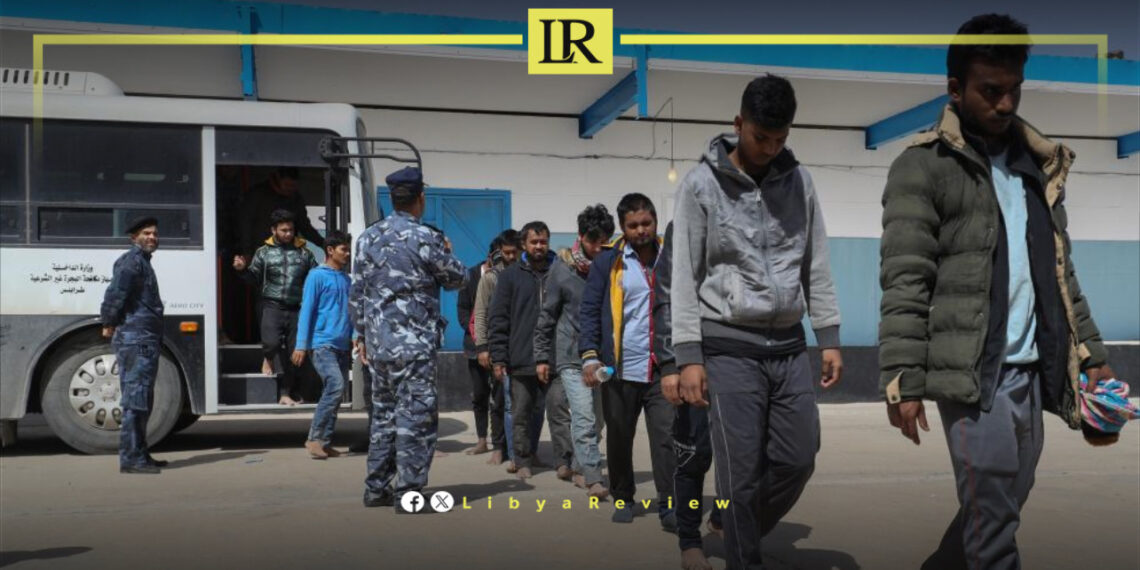On Saturday, Libya’s Directorate for Combating Illegal Migration announced the deportation of 91 irregular migrants through Sebha International Airport, reinforcing the country’s efforts to tackle illegal migration and strengthen its southern borders.
In a statement, the Directorate confirmed that the group included 67 Ethiopian nationals, 21 Senegalese nationals, and 3 migrants from Côte d’Ivoire.
The individuals were detained earlier by the agency’s branches operating in Al-Shati and Sabha municipalities, located in southern Libya.
This deportation marks part of a series of operations aimed at controlling migration flows, limiting human trafficking networks, and reducing pressure on local communities.
The campaign is being carried out in coordination with local authorities and international partners amid increasing security and humanitarian challenges.
Libya has remained a major transit hub for migrants hoping to reach Europe, despite political instability and security risks. Thousands continue to cross its porous southern borders each year, often falling victim to traffickers and facing harsh conditions during their journey.
The Directorate emphasized that operations such as these reflect Libya’s ongoing commitment to restoring stability, enhancing border management, and ensuring the humane repatriation of migrants according to international law.
However, human rights organizations have raised concerns about the conditions faced by migrants in detention facilities, calling for comprehensive reforms to protect the rights and dignity of migrants throughout the repatriation process.
Authorities indicated that more deportation flights are planned in the coming weeks, in collaboration with countries of origin and relevant international agencies.
Officials stressed that Libya will continue working to dismantle trafficking networks, improve border security, and manage migration pressures in a way that safeguards both national interests and humanitarian standards.
As Libya struggles to balance security priorities with human rights obligations, migration remains one of the most pressing and politically sensitive issues facing the country’s transitional authorities.


